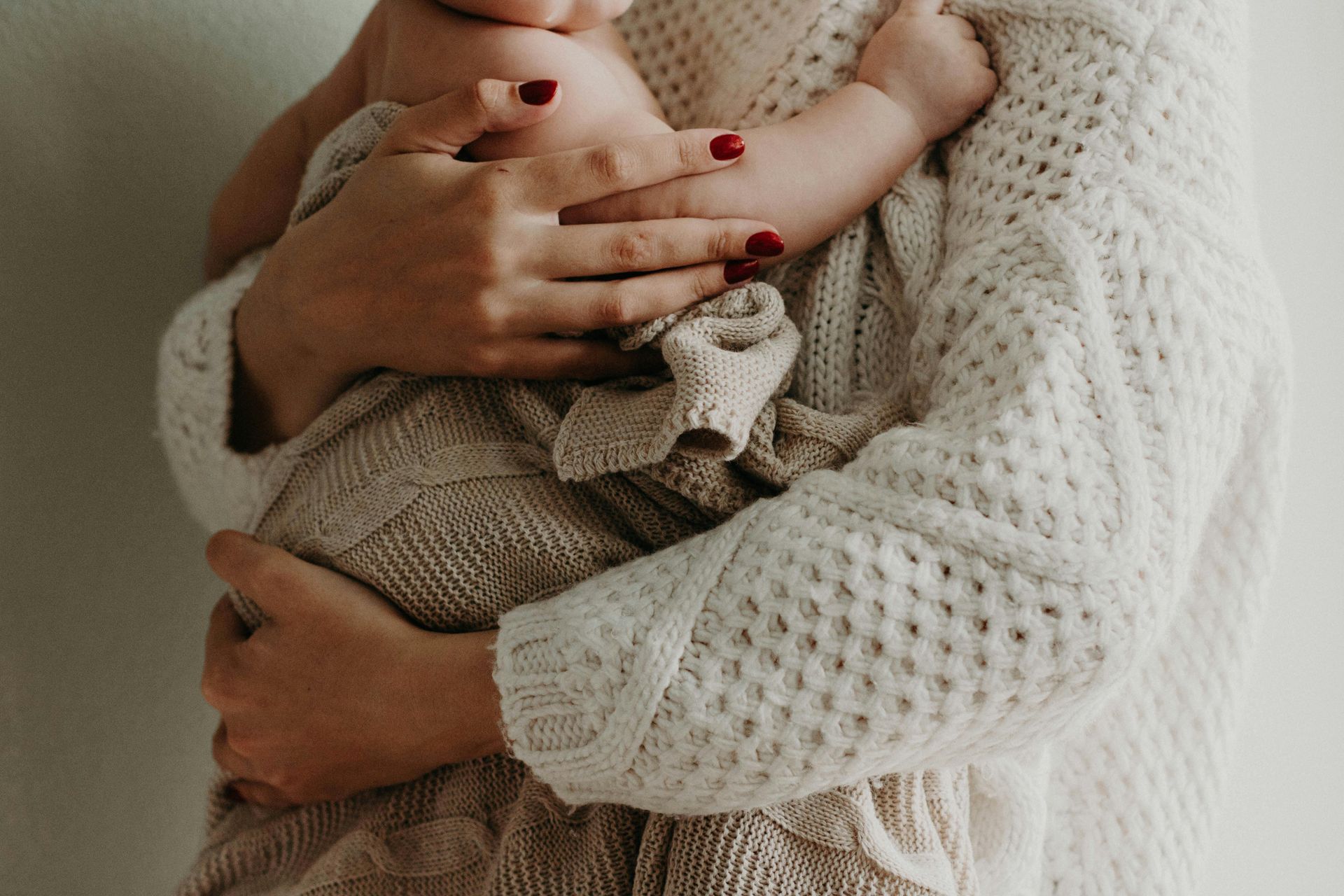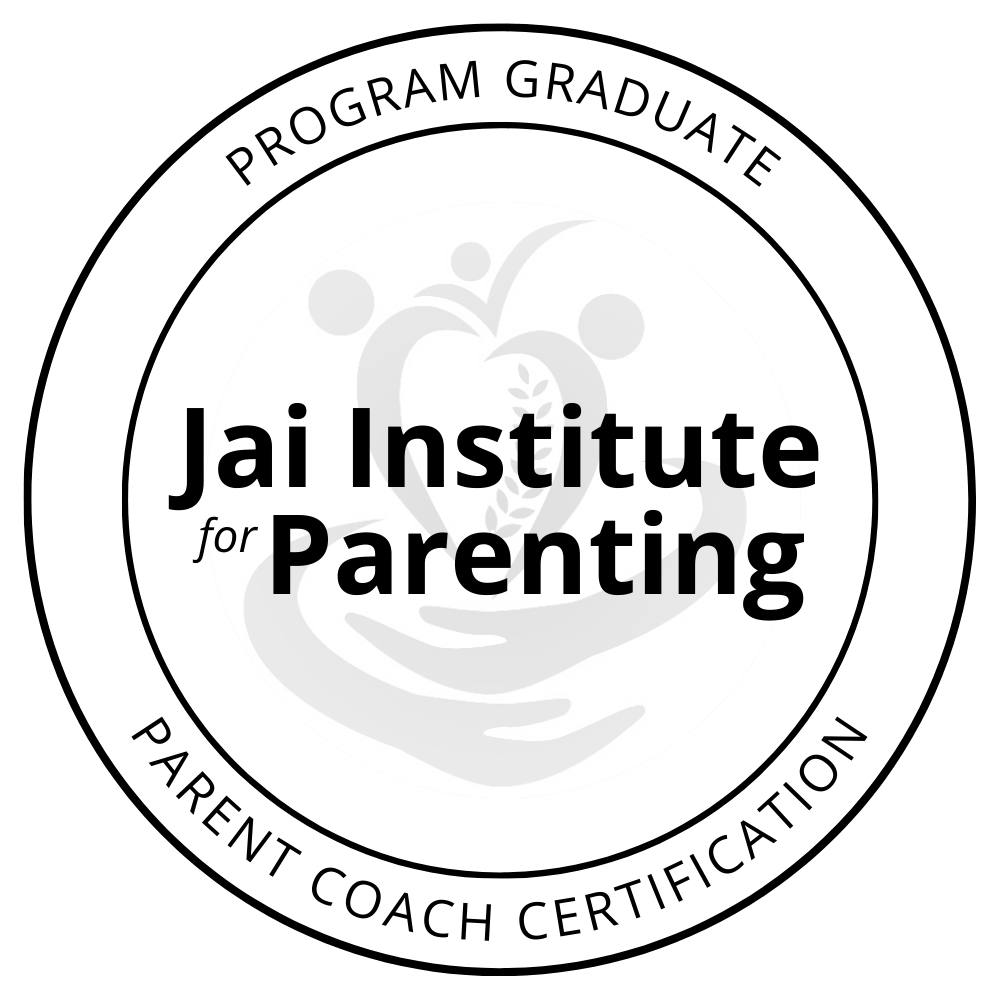Blog Layout
Parenting Beyond Success and Failure
Kelly Cox • January 14, 2025
Parenting can often feel overwhelming, filled with moments of doubt and fear that we're not doing enough or that we’re failing our children. But here's a truth:
You are enough. You are exactly the parent your child needs.
Although it may feel like it, parenting is not a checklist of accomplishments or milestones. It’s about a relationship—one that, like any relationship, can be strengthened, nurtured, and repaired. You cannot fail in your role as a parent because parenting is not about success or failure. It’s about showing up, being present, and being willing to grow. It's never too late to make shifts in the way you connect with your children, and every effort you make to improve that connection is a step toward building a more fulfilling and loving relationship.
When things aren’t going well, it’s easy to feel like you’re failing. You may find yourself filled with shame, wondering if you’re doing it all wrong. But here's the thing: what feels like failure is often just a hurdle or a moment of disconnection
between you and your child. It’s not a permanent state—it’s a signal that something needs attention. And the beautiful part of this is that it’s always mendable. No moment is beyond repair!
If you're reading this, it's obvious that you care deeply about your relationships with your children. So, if you’re finding yourself quick to judge your child’s actions, ask yourself: do you want a relationship built on judgment and criticism? Do you want your home to be a place where everyone is constantly on edge, worrying about being right or wrong? Or do you want a space where everyone feels safe, loved, and accepted for who they are?
Similarly, if you find yourself reacting with anger, yelling, punishing, or threatening—take a moment to pause. Is this the kind of relationship you want to nurture, one built on fear? Parenting isn’t about controlling your child; it’s about fostering connection, empathy, and trust.
You have the power to make shifts in your own reactions, to show more understanding, and to be a steady presence for your child.
Healthy relationships need connection, safety, and attachment to thrive. Your child’s behaviors, especially when they're challenging or frustrating, are often a reflection of their inner world.
They may be struggling to express their feelings or make sense of their emotions. When they feel like they are always in trouble, always doing something wrong, or always being shamed for their mistakes, it’s hard for them to feel good about themselves. They may even start to believe that making mistakes and feeling badly is what’s expected of them. But that’s not what we want for them, right?
As parents, it's not our job to judge, punish, or criticize them for their struggles. Our job is to recognize when our kids are struggling and to respond with compassion and support. We can ask ourselves, How can I help my child feel better and do better?
The goal is not to fix them, but to support them in a way that helps them grow and feel safe in their relationship with us.
If your family is going through a rough patch right now—filled with conflict or disconnection—please know that there is always hope. Parenting is a lifelong journey, and there is always room for more connection, more joy, and more understanding. Your relationship with your child can always evolve and heal!
What matters most is not whether you’ve “messed up” in the past, but whether you’re willing to show up authentically, with more compassion, more security, and more presence. You can create an environment where your children can learn to be more intentional with their emotions, too. This process strengthens your connection and will carry you both through the years to come!
The relationship you are building with your child is not just for today or tomorrow—it’s for a lifetime.
So, even if things feel challenging right now, don’t. give. up.
Parenting isn’t about perfection—it’s about connection.
And as long as you’re willing to show up and do your best, that’s all your child needs.
You are enough. Right now. Exactly as you are.
Share
Tweet
Share
Mail

By Kelly Cox
•
February 11, 2025
There’s something deeply personal I want to share, something that’s greatly shaped the way I experience motherhood. Exactly one year before becoming pregnant with my first child, my mom passed away unexpectedly. Her death was sudden and traumatic, and the grief I felt was overwhelming. The pain of losing her—and everything she meant to me—still lingers. And it’s something I reflect on often. Since the earliest days without my mom, I couldn’t help but consider how different things would be if she were still here. She would have been so involved in my life as a mom—offering her wisdom, her love, and her joy (and definitely an occasional critique :P). But even though these thoughts still bring some pain, I also recognize that I’ve channeled my grief into something beautiful in my own journey. Yes, there will always be layers of heartbreak. Part of me will forever grieve what my mom is missing out on (and what I am missing out on), knowing that neither of us get to experience this chapter the way we’d imagined. But there has been joy as well. My mom was such a huge part of my life. We talked every day, and together, we often wondered about what this stage of our lives would look like. Where would I live? How many kids would I have? Would they look like me or Matt? If we lived near each other, we guessed that she would be popping over often to help or just hang out. But after her passing, I had to face the reality that she wouldn’t be here to find out what happens next. This made me more aware than ever of how fleeting life is. It also sparked a deep sadness about what my children might experience if I’m not here for them when they need me most. That thought has often triggered anxiety and a new kind of pressure in me—the pressure to "get it right," out of fear that I won’t have enough time with my own kids. I’ve worked through these feelings with my therapist, and what I’ve learned is that while my mom isn’t physically here, her love continues to guide me. I find myself giving my children the same love, warmth, and energy she gave me—while also consciously making changes where I can. I often reflect on our relationship and realize there are things I wish we could’ve talked about—things I wish I could repair or understand better. While she was an amazing mom, I now recognize there were emotions that she carried that I didn’t fully understand until I became a mother myself. Her upbringing was so different from mine. She was one of eight children and only spoke Spanish when she moved here from Puerto Rico as a child. She and her siblings navigated their new world with parents that couldn't fully communicate with teachers and peers. Her early experiences shaped her in ways that I’m only beginning to understand. Despite the challenges she faced, she instilled in me a deep sense of gratitude for family (given or chosen)—something that remains at the heart of how I approach motherhood. One of the most unexpected parts of this journey has been gaining a new perspective on my mom’s love. For years, I couldn’t quite grasp why she did or said certain things. But now, as a mother, I’m seeing the sacrifices she made, the worries she carried, and the depth of love she poured into me—even when I couldn't fully see it at the time. It’s a bittersweet realization, though, because I can’t share this newfound understanding with her. I don’t even know if other women talk about these things with their moms, but I know my mom and I would have, and I think I'll always grieve for that. Oh, to be able to say "Mom, I'm sorry about those teen and young adult years!" and "Thank you for all of it." Reflecting on my relationship with my mom has become an interest of mine. It’s part of what drives my work as a parent coach. But navigating grief while becoming a mother, especially when you can’t share that early part of the journey with the one person who would’ve understood you best, has been an unexpected and strange experience. It’s beautiful and painful at the same time, and I’m still figuring out how to live in that tension. If you’re going through something similar—whether by circumstance or by choice—I want you to know that you’re not alone. It can feel incredibly isolating not having your own mom by your side when you’re stepping into motherhood. But I see you. I understand the weight of this journey, and I know you're doing your best. Motherhood, just like grief, is something we each navigate in unique ways. It’s okay to feel both sadness and joy, to miss what’s gone while embracing what’s here. I know we would want the same for our own children.

By Kelly Cox
•
December 9, 2024
As parents, we all want to raise kids who are kind, responsible, and resilient. But let's be honest: navigating the ups and downs of parenting can sometimes feel like we're walking a tightrope between love and frustration. When our kids make mistakes (and they WILL make mistakes), it's easy to feel that we need to "fix" their behavior immediately. And often, we default to punishment as a way to get them to "learn their lesson." But what if I told you there's a better way--one that helps build trust, keeps your emotional connection intact, and actually teaches your kids the life skills they need to do better next time? This is where discipline comes in. Discipline vs. Punishment: What's the Difference? Let's start with what discipline really means. The root of the word comes from the Latin word discipulus , meaning "to learn," and disciplina, "to teach." Discipline is about guiding, teaching, and helping our children develop the emotional and social skills they need to make better choices. It's not about controlling or punishing them-- it's about empowering them to understand their mistakes and grow from them. Punishment, on the other hand, often relies on blame, shame, and making our kids feel badly for what they've done. While it might give us an immediate sense of control, punishment typically results in disconnection, fear, and confusion. It doesn't teach our kids what to do next time , and often leaves them feeling unloved and misunderstood. And in the long run, punishment can erode the influence we have as parents. I mean, who actually wants to listen to someone who makes them feel bad? I know I don't! Why Discipline Builds Connection When we approach discipline from a place of teaching, we remain emotionally connected to our kids. We show them that when they make mistakes, we're not here to judge them, but we're here to help them navigate their feelings and learn from their experience. We get to model empathy, patience, and kindness--traits we want our children to carry with them throughout their lives. For example, imagine your child loses their temper and says something hurtful to a sibling. Instead of immediately sending them to their room or giving them a timeout (which are forms of punishment!), discipline invites us to pause, reflect, and respond thoughtfully. In these moments, it's important to remind ourselves that our child's misbehavior is likely a sign of a missing life skill, like emotional regulation or problem-solving. So, rather than punishing them for not getting it right, we can teach them how to handle their emotions in a more constructive, less harmful way. When our kids make mistakes, they don't need to feel ashamed--they need help learning what went wrong and how they can do better next time. Let's say your child has a hard time turning off their electronics when you ask. Punishment might look like immediately taking their device away for a week "because they didn't listen!" But is this really teaching them the underlying lesson? Likely not! A more effective approach would be to set a logical consequence--maybe limiting screen time until they can demonstrate that they can manage transitions more smoothly. This approach teaches the skill of self-regulation, which is far more valuable in the long run than simply imposing a penalty. Similarly, if your child struggles to use kind words, punishing them with something arbitrary like denying them dessert is not addressing the root issue. Discipline, however, allows us to be curious and dig deeper. So when everyone's calm, you might chat with your child about what's going on for them-- why they're struggling with kindness and what they can do differently next time. This builds emotional intelligence and empathy, both of which are essential for healthy relationships. A Safe and Secure Environment One of the most important aspects of discipline is that it helps our children feel safe and secure in our presence. Kids need to know that, no matter what, they can come to us with their mistakes, their challenges, and their big emotions WITHOUT FEAR of being rejected or punished. We get to show our children that we are their safe space and are here to help them through life's challenges, not to add to their stress. And when they feel safe, they are far more likely to listen, cooperate, and make better choices. So, What About Consequences? I want to be clear: discipline doesn't mean there are no consequences. Sometimes consequences are necessary to teach kids that their actions have an impact. But consequences should be logical and related to their behavior, not arbitrary or punitive. For example, if your child refuses to do their homework, a natural consequence might be that they lose some screen time that day or have to miss out on something they had planned on doing because they didn't prioritize their responsibilities. This teaches them the importance of time management and accountability ( remember, we're aiming to teach the missing life skills! ). But consequences should always be paired with a learning moment. Rather than focusing on the "punishment," we should also focus on why the behavior happened, how it could have been handled differently, and what skills they can develop for next time. The Power of Discipline At the end of the day, discipline is about building a relationship based on mutual respect, understanding, and growth. It's not about power struggles or creating fear-- it's about guiding children in ways that help them become the best version of themselves. When we approach discipline with kindness and empathy, we give our kids the tools they need to handle challenges and make better choices. And most importantly, we strengthen the emotional bond between us, creating a family dynamic where everyone feels safe, heard, and supported. So, next time your child makes a mistake or struggles with their behavior, remember that discipline is the path to connection. And connection is the path to cooperation. Instead of punishment, let's model, teach, and encourage them. Our kids will thank us for it--now and in the years to come. P.S. - Dear Reader - If this all seems backwards to you and you can't imagine parenting in this way, I get it! We carry the patterns that we experienced as kids with us into our own parenting, and it makes sense if this doesn't seem "right" to you. I imagine you may have been parented with punishments, shame, or blame--and those things stay with us as we become adults. If you're curious about any of this or are wondering what could be getting in the way of your connections with your own kids (and yourself!), I'm here to walk alongside you as you break down any barriers or beliefs that may be holding you back. AND I'm proud of you for even reading this! You are already an incredible parent and I have so much hope and gratitude for you.

By Kelly Cox
•
November 3, 2024
Parenting is a journey unlike any other. It’s a mix of joy, challenges, and moments that shape not only our children but also ourselves. An important part of my work as a parent coach is delving into how our own childhood experiences and how we were parented influence the way we parent today. Understanding Attachment Styles Think back to your own childhood. How did you feel when your needs were met promptly? How about when they weren’t? These early interactions with our parents and caregivers lay the foundation for our attachment styles - the emotional bonds we form with others. Whether we felt secure, anxious, avoidant, or disorganized attachment shapes how we relate to our own children. Securely attached children tend to grow into parents who are responsive to their children’s needs, creating a nurturing cycle of trust and empathy. On the other hand, those who experienced inconsistent caregiving might struggle with their own emotional responses or find it challenging to attune to their children’s (and their own!) emotions. Maybe you’ve noticed patterns in your own parenting that mirror your relationship with your parents. Perhaps you find yourself reacting in ways you swore you never would. This awareness is powerful and gives you the opportunity to pause, reflect, and choose a different response. When we take the time to understand how our own upbringing and attachment styles influence our parenting, we can start to make conscious choices about how we want to show up for our own kids. The Impact of Nervous System Regulation Now, let’s talk about stress - something every parent is familiar with! Our ability to regulate our nervous system during high-stress moments significantly impacts our interactions with our children. Picture a chaotic morning rush or your toddler’s meltdown in a crowded grocery store. These are the moments when our nervous systems are put to the test! Parents who can stay calm amidst the storm, who can regulate their own emotions when others are dysregulated, are better equipped to support their children through difficult emotions and experiences. But it's not about being perfect - it’s about being present and responsive in ways that foster connection and understanding. Building Resilience and Connection So, how do we create the kind of parent-child relationship we aspire to? It starts with self-awareness and self-compassion. Recognizing our triggers and practicing techniques to regulate our own emotions - whether it’s deep breathing or saying a mantra - can make a world of difference! And when we prioritize our own nervous system healing, we not only model resilience for our children but also create a safe space for them to express themselves authentically. They get to learn that their emotions are nothing to be afraid of. This understanding lays the groundwork for our kids' healthy emotional development and strong, secure attachments. Embracing the Journey Parenting is a journey of growth, for both parents and children, and isn't just about rules and discipline. It's so much more than that. It's about learning from our experiences, embracing imperfection, and cultivating compassion every step of the way. It's about our relationships. By understanding how our own childhood experiences and attachment styles influence our parenting, we empower ourselves to create meaningful connections within our families, and in the process, we give our kids the gift of secure attachment.


